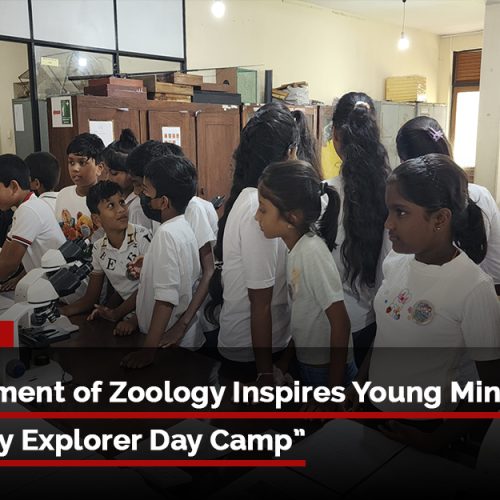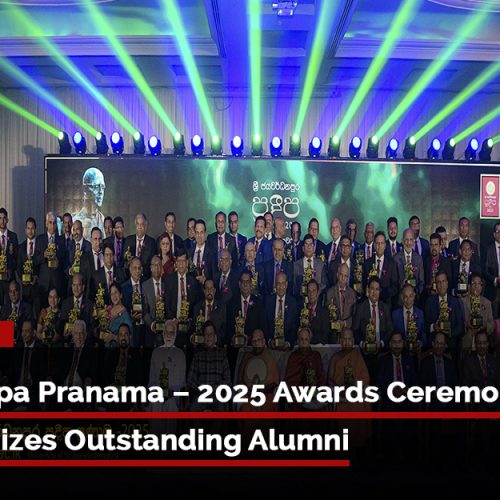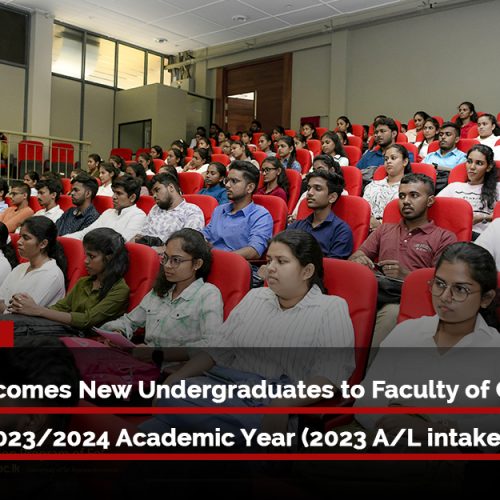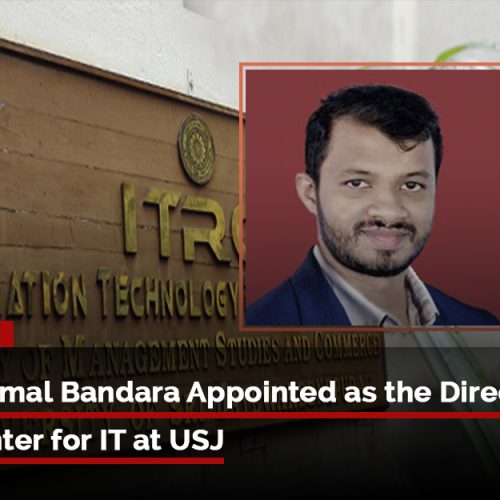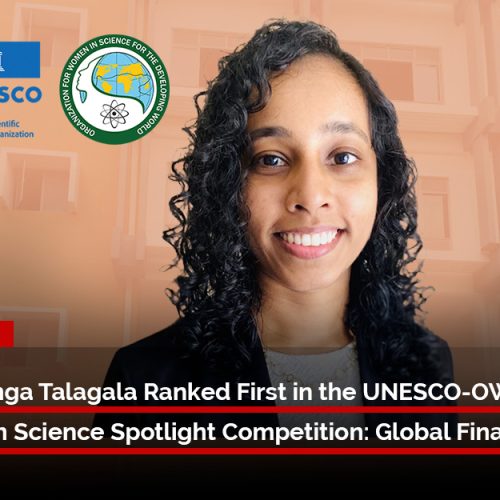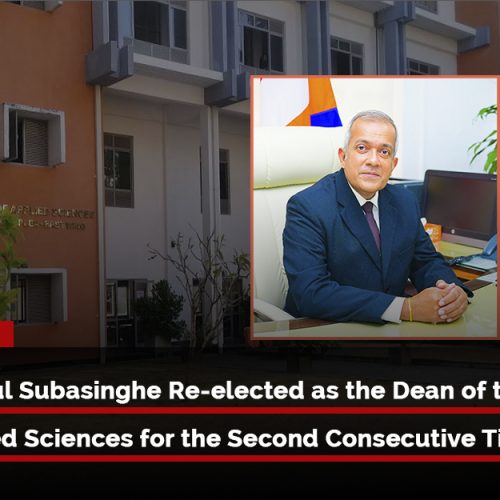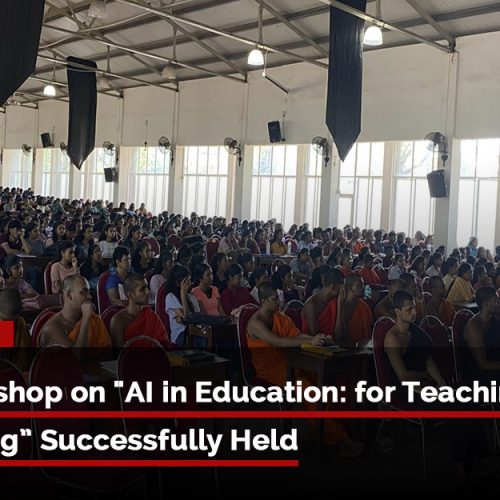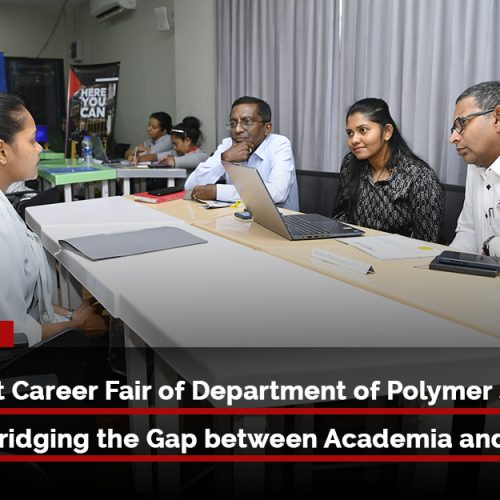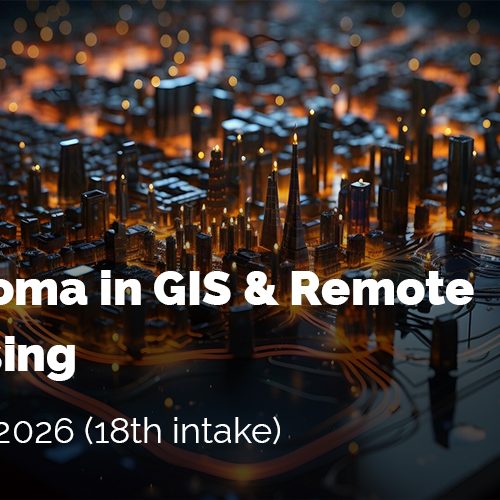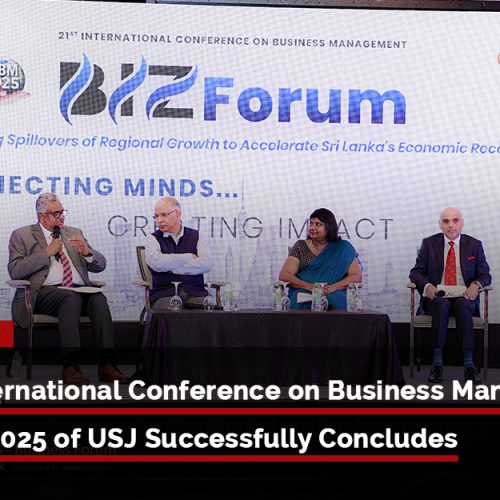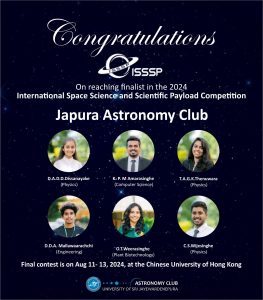
A team of undergraduates from the University of Sri Jayewardenepura, known as J’pura Astrals, has been selected as finalists in the international space science and scientific payload competition, “A Shared Space For A Better Future”. They are one of the final 15 teams worldwide selected under Theme 1: Creative Design of Space Experiment. This global competition aims to create an innovative environment and community for space exploration, inviting participants to submit their space experiments and payload test projects. The top projects will be recommended as candidates for missions on the Chinese Space Station, the International Space Station, scientific satellites, and other space missions. The competition is sponsored by the Chinese Society of Astronautics, Beijing Institute of Technology, International Academy of Astronautics (IAA), and The Chinese University of Hong Kong. Its goals include making full and effective use of rare space resources, promoting major scientific discoveries, and encouraging innovative technological breakthroughs in the aerospace field. Additionally, the competition aims to advance aerospace technology, promote the sharing of innovative achievements, and foster a culture of collaboration and shared progress in space exploration.
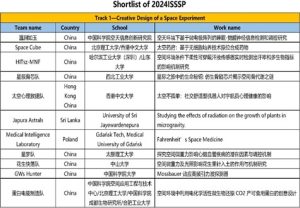
The J’pura Astrals team competed under Theme 1: Creative Design of Space Experiment. Their project studies the effects of space radiation on plant growth in microgravity. This experiment aims to improve our understanding of how space conditions affect plant growth and to develop methods to protect plants from radiation. Such findings could help protect astronauts’ lives and support future colonization of other planets.
The J’pura Astrals team successfully passed the preliminary round and is now preparing for the final round, which will be held from August 11-13 in Hong Kong.
The team includes Ms. Dinithi Dissanayaka (Physics), Mr. Pavith Amarasinghe (General), Mr. Chamika Wijesinghe (Physics), Ms. O. T. Weerasinghe (Plant Biotechnology), Mr. D. A. Mallawarchchi (Engineering), Ms. T.A.G.K. Thenuwara (Applied Physics), and their project supervisor, Prof. M.L.C. Attygalle (Physics).

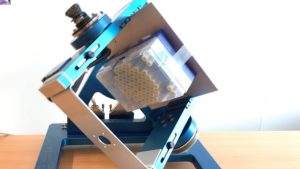
Team Member Introduction of International Space Science and Scientific Payload Competition (ISSSP 2024)
1.Profile of the team
Supervisor: Prof. (Mrs.) M. L. C. Attygalle
Prof. (Mrs.) M. L. C. Attygalle is a distinguished Professor in Physics, having earned her Doctor of Philosophy in Physics from The University of Toledo, Toledo, OH, USA, in May 2008. Under the guidance of Dr. Victor Karpov, her PhD thesis dealt with theoretical models for polycrystalline thin films photovoltaics. Prior to her PhD, she obtained a Bachelor of Science degree with First Class and Honors in Physics from The University of Colombo, Sri Lanka, in February 2002. Theoretical modelling of photovoltaic junction, condensed matter physics, materials science and theoretical physics is the focus of Professor Attygalle’s research. In addition, she is very concerned about the development and improvement of teaching and learning methods in physics education.
With a wide range of experience and professional background, she is an invaluable mentor and leader to the research team.
Team Members
Team member 1 – D.A. Dinithi Dewmini Dissanayake
D.A. Dinithi Dewmini Dissanayake is currently pursuing a Bachelor of Science (BSc) Honors degree in Physics. She has a strong background in mathematics, physics and computer science through her educational program. Astrophysics, stellar spectroscopy, planetary science and space physics are the main research interests of her. She’s passionate about understanding the fundamental mechanisms of the universe, and her academic background gives her the necessary skills for exploring these complex phenomena.
Team member 2 – Oshadhi Thamaya Weerasinghe
Oshadhi Thamaya Weerasinghe is a final-year student pursuing a B.Sc. (Hons) degree in Plant Biotechnology. Her interest in computational biology, molecular biology and bioinformatics has been very strong. Oshadhi is working on her last year’s research project in Molecular Biology and would like to continue exploring the field of Computational Biology further. Her passion for innovation in biotechnology is illustrated by her multidisciplinary approach, which combines the use of computing methods with biotechnological studies.
Team member 3 – T.A Gayodya Kaushalya Thenuwara
T.A Gayodya Kaushalya Thenuwara is an undergraduate student working towards a BSc (Honours) degree in Applied Science with a major in Physics. She has a keen interest in nuclear physics, nuclear medicine, and medical imaging. Her dedication to these fields highlights her commitment to both the fundamental and applied aspects of physics, particularly in medical applications, aiming to contribute to advancements in medical technology and treatments.
Team member 4 – Chamika Shevantha Wijesinghe
Chamika Shevantha Wijesinghe is also pursuing a Bachelor of Science (BSc) Honors degree in Physics, with a solid foundation in mathematics and computer science. His research is particularly focused on the temperature dependence of solar cells, an area crucial for improving the efficiency and performance of solar energy systems. Chamika aims to contribute to the development of more reliable and efficient renewable energy sources, addressing global energy challenges through his research.
Team member 5 – Pavith Amarasinghe
Pavith Amarasinghe holds a B.Sc. Degree in Physical Science from the University of Sri Jayewardenepura, focusing on mathematics, physics, and computer science. His research interests include cosmology, exoplanet research, and observational astronomy.. His work in observational astronomy involves utilizing telescopic technologies and data analysis techniques to study cosmic phenomena.
Team member 6 – Dulanka Mallawaarachchi
Dulanka Mallawaarachchi is an undergraduate student in Mechanical Engineering, pursuing a BSc (Hons) Engineering degree with a minor in Mechatronic Engineering. His research interests are diverse, including robotics and automation, quantum computing, sustainable energy, and aerospace engineering and aerodynamics. Dulanka’s commitment to cutting-edge technological advancements and sustainable practices is evident through his multidisciplinary research interests, aiming to push the boundaries of engineering and technology.
2. Expectation and Suggestions for the Contest
We anticipate that the contest will encourage innovative thinking and creative problem- solving among participants. Tackling complex issues like the effects of radiation on plant growth in microgravity motivates teams to develop novel solutions and experimental approaches, pushing the boundaries of current scientific understanding.
Given the interdisciplinary nature of space research, we believe the contest will foster collaboration across different fields. Our project combines physics, biology, engineering, and data science, demonstrating the importance of teamwork and diverse perspectives in tackling complex scientific problems.
The contest provides a valuable opportunity for students and researchers to expand their knowledge and skills in space science and experimental research. Working on such a challenging project will enhance our technical abilities and deepen our understanding of space environments.
We hope our participation will make a meaningful contribution to space research. Insights from our experiment on plant growth in microgravity and under radiation can inform future space agriculture projects and support long-term human space exploration.
Suggestions
Implementing mentorship programs where teams can receive guidance from experienced researchers and industry experts would be very beneficial. Mentors can offer valuable insights, help solve problems, and provide professional advice, enhancing the learning experience.
Organizing workshops and training sessions on key topics like experimental design, data analysis, and presentation skills can equip participants with the knowledge and tools they need to succeed in the contest. These educational opportunities can bridge knowledge gaps and ensure all teams are well-prepared.

